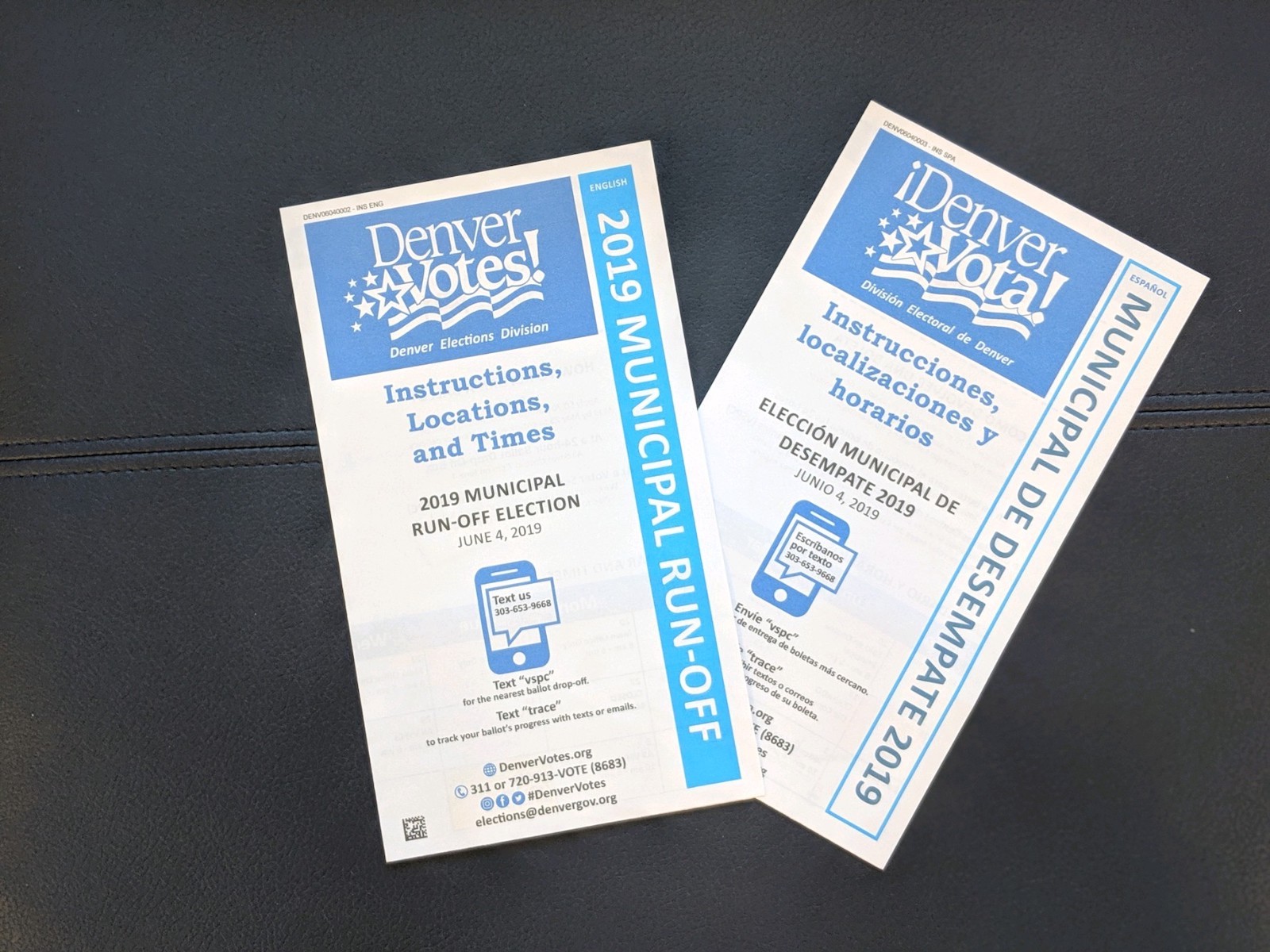The Local newsletter is your free, daily guide to life in Colorado. For locals, by locals.
When the last ballots were counted—all 186,394 of them—after the May 7 general municipal election, seven races were undecided and headed to a runoff because no one had secured the threshold for an all-out victory. That means that Denver voters will pick up their pens again to cast votes for five city council seats, clerk and recorder, and mayor on June 4. Put another way, nearly half of the races were undecided after the first round.
So, is Denver feeling indecisive or is this runoff situation normal for municipal elections?

Eric Sondermann, an independent political analyst, says that the number of runoffs is unusual, particularly because three contests include current city council members. “Defeating an incumbent city council member is incredibly rare,” he says. Conventional wisdom, he adds, would say that some of these races—in particular, the mayoral contest—could have been slam dunks because of the strong economy.
But, as the general election clearly showed, that is not the case. Sondermann says various factors are motivating voters; a common refrain being, “There’s a sense that growth is too much, too fast. Too many people being displaced, too much loss of character…too much traffic and not enough planning.”
Plus, Denver does like a good runoff. This will be the seventh municipal election runoff since the mid-1980s. And while this is the first time an incumbent mayor will face a runoff since 1995, it is not Mayor Michael Hancock’s first. While he’d hoped to avoid a runoff this year, he was a major beneficiary of the process early in his political life.
During his 2003 bid to join the city council, Hancock won a runoff with just over 63 percent of the vote. And, when John Hickenlooper packed up and moved across the way to the Governor’s office in 2011, Hancock was one of 10 candidates vying for the open seat. He earned second place in the general election—finishing narrowly ahead of James Mejia—to make the runoff ballot.
In the runoff election against Chris Romer, a state senator and former Governor Roy Romer’s son, Hancock pulled ahead with 58 percent of the vote. “He was not the first round winner,” says Paul Teske, School of Public Affairs Dean at the University of Colorado Denver. “He ended up winning fairly easily.” Similarly, Teske points out that former mayors Wellington Webb and Federico Peña both faced runoffs as incumbents and won (in 1995 and 1987, respectively).
It is worth noting, too, that Denver isn’t the only city to rely on runoff elections in municipal races. Voters in Tampa, Florida elected Jane Castor in a second election on April 23, and two candidates are currently vying to be San Antonio’s mayor. Last month, Chicago voters elected Lori Lightfoot as mayor in a runoff that gained national attention.
The question remains whether an already contentious runoff campaign will translate into more votes being cast on June 4. Turnout was higher for the May 7 contest, with approximately 39 percent of voters returning ballots, than in the 2015 or 2011 general municipal elections. Teske says that a number of factors impact turnout, but highlights mailed ballots as one reason for the increase. Denver has used mailed ballots since the aughts, but it wasn’t until 2013 that the state legislature mandated ballots be sent to all active, registered voters in elections (citizens still have options for in-person voting). That means that pollsters and campaign planners have only a few elections to pull data trends from (read: we’ll know more with each election).
While turnout can be higher in runoffs—particularly if the mayoral race is on the ballot, like this year—it is not a given that more voters will turn out a second time. But with so many council races on the ballot, plus the most powerful position in Denver in the mix, voters could be more motivated now that the contest is a choice between two candidates. “The dynamics change, I think, in the second round,” Teske says. “The stakes are higher; it’s less confusing.”
In short: Denver, it’s time to make up your mind.








